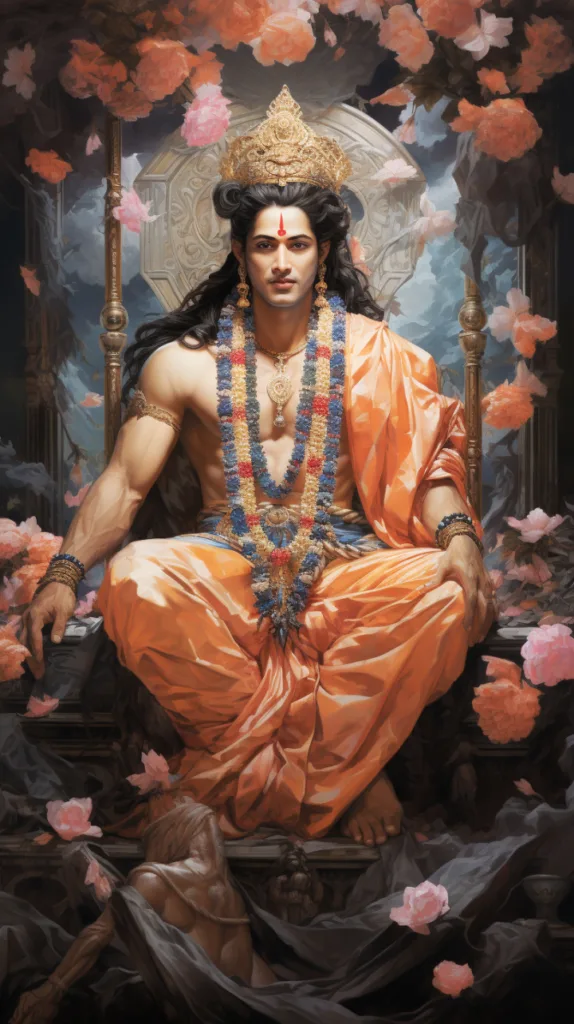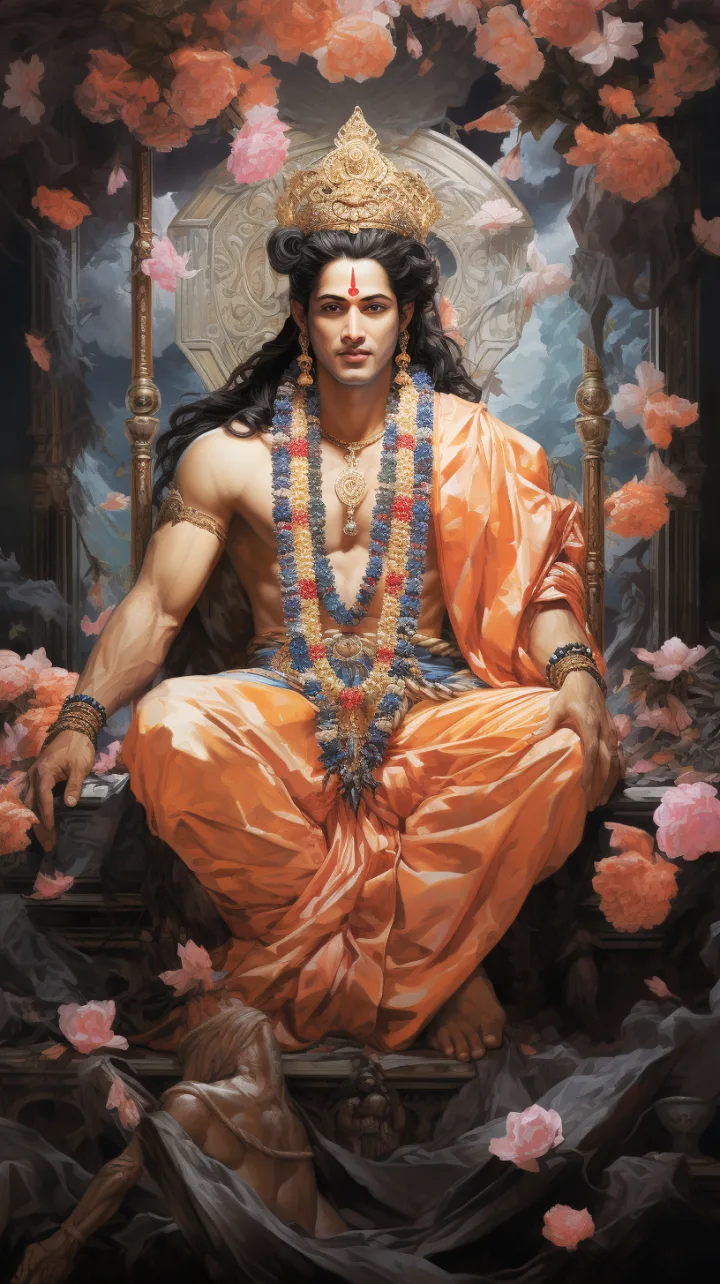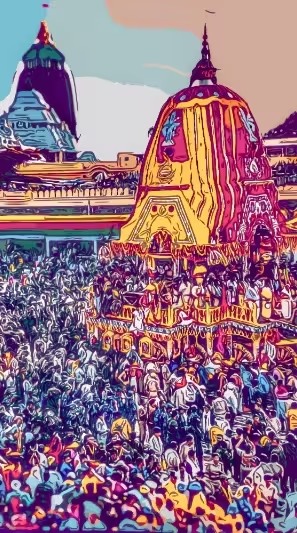
In the grand tapestry of the universe, woven with tales of gods and heroes, there resides a special story. A tale of a prince, a valiant hero, a beloved son, and an avatar of Lord Vishnu. This prince was none other than Bhagwan Ram, also known as Lord Rama, a major figure in the pantheon of Hinduism. According to ancient Indian chronicles, known as Bharatiya Itihasa, he was the seventh incarnation of the mighty god Vishnu, and his life story is immortalized in the epic Ramayana. Once upon a time, nestled amidst the hustle and bustle of ancient India, lay the magnificent kingdom of Ayodhya. In this realm, filled with love, prosperity, and righteousness, lived a radiant prince named Rama. He was known far and wide, not only for his extraordinary courage and wisdom but also for his profound respect and obedience towards his parents, the noble King Dasharatha and the virtuous Queen Kausalya.
In Ayodhya, Rama was a beacon of virtue, a guiding light for everyone around him. His unwavering respect for his parents, his unyielding commitment to the path of righteousness, and his adherence to Dharma made him an embodiment of the ideal son. King Dasharatha, proud of his son’s noble character, often referred to Rama as his “right hand”.
But as the wheel of time turned, a shadow loomed over the happy kingdom. A forgotten promise King Dasharatha had once made to his other wife, Queen Kaikeyi, suddenly reappeared. She demanded the fulfilment of two wishes: Rama’s banishment to the forest for fourteen long years, and the crowning of her own son, Bharata, as king.
The news spread like wildfire, shaking the foundation of Ayodhya. But when it reached Rama, the prince showed no signs of anger or resentment. Instead, with a calm smile, he said, “A promise is a promise. I shall honour father’s word, for obeying and respecting one’s parents is the cornerstone of Dharma.”
The citizens of Ayodhya, though heartbroken, were in awe of Rama’s fortitude and commitment to honour his father’s word. Even when facing his exile, Rama’s actions served as an enduring testament to his respect and obedience towards his elders.
In the forest, far away from the comforts of the palace, Rama’s courage and adherence to his principles shone even brighter. He remained respectful, humble, and committed to his path, embodying the virtues he held dear.
Rama’s tale is not just a story; it’s a life lesson that transcends time and space. It teaches us the significance of respecting and obeying our elders, even when the path is strewn with hardships. Through Rama’s actions, we learn that our choices should always be guided by love, respect, and obedience towards our parents.
Rama’s life story serves as a beacon, illuminating the path of righteousness and reinforcing the importance of respect and obedience. It reminds us that honouring commitments, especially those made to our elders, is a virtue that often requires great personal sacrifice. This timeless wisdom makes Rama’s tale a living testament, inspiring countless generations to walk the path of righteousness, respect, and obedience.





